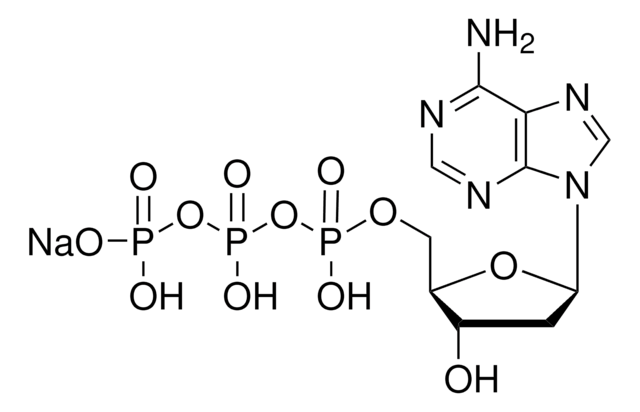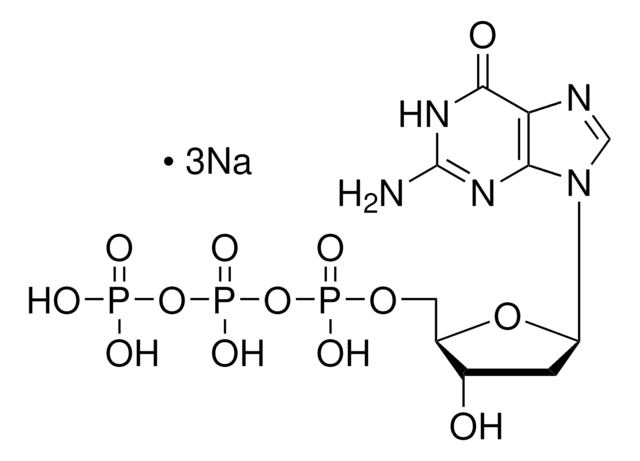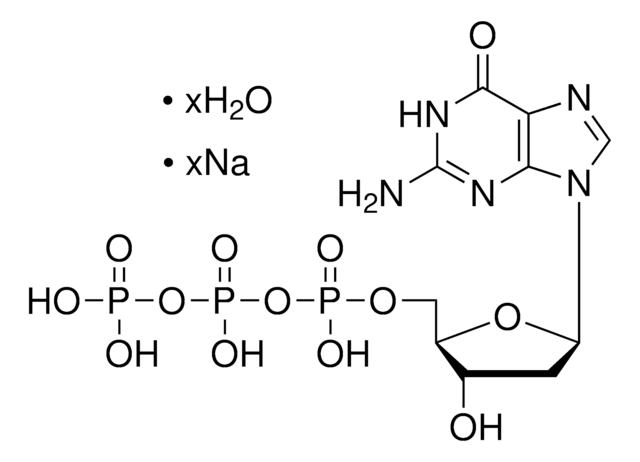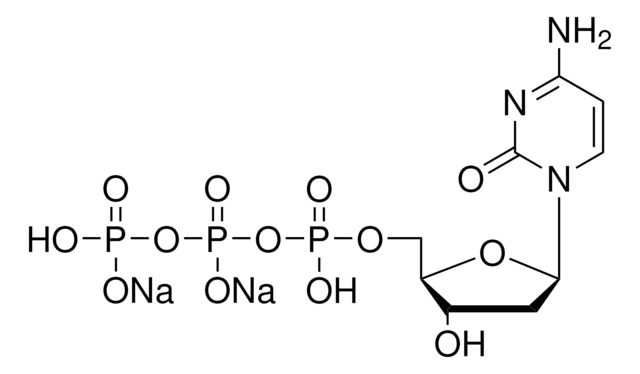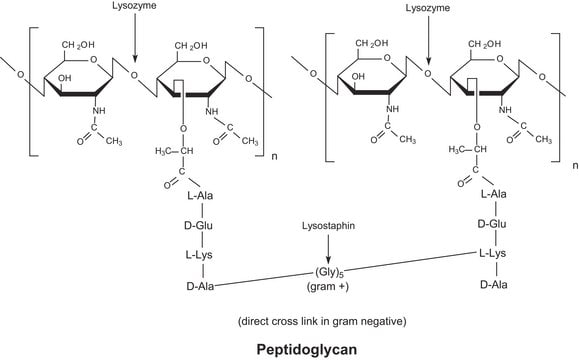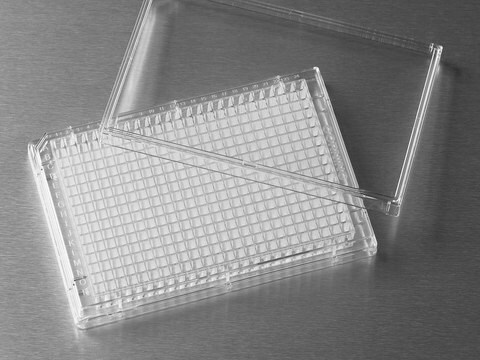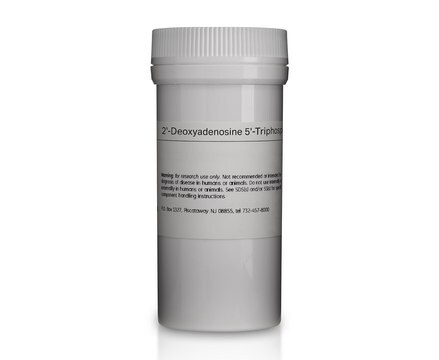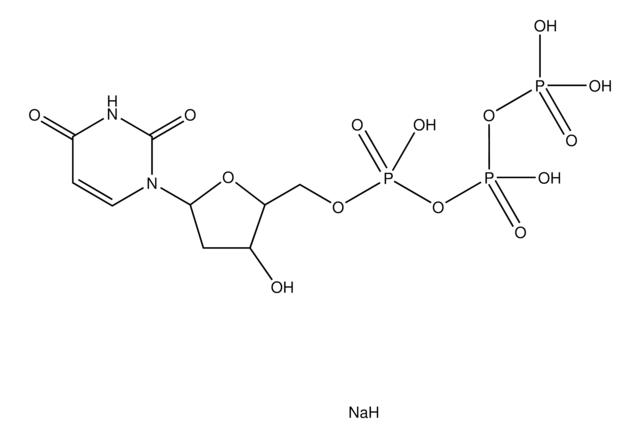DCTP-RO
Roche
dCTP
99% (dNTP), <0.9% (dNDP), solution, 100 mM
Sinónimos:
2′-Deoxycytidine 5′-triphosphate disodium salt, dCTP-Na2
About This Item
Productos recomendados
description
PCR Grade, sodium salt
Quality Level
assay
99% (dNTP)
form
solution
usage
sufficient for 125,000 standard reactions (03732690001)
sufficient for 31,250 standard reactions (11969021001)
sufficient for 6,250 standard reactions (11934520001)
packaging
pkg of 1,250 μL (11969021001 [100 mM])
pkg of 4 × 1,250 μL (03732690001 [4x100 mM])
pkg of 250 μL (11934520001 [100 mM])
manufacturer/tradename
Roche
concentration
<0.9% (dNDP)
100 mM
storage temp.
−20°C
SMILES string
[Na+].[Na+].NC1=NC(=O)N(C=C1)[C@H]2C[C@H](O)[C@@H](COP(O)(=O)OP([O-])(=O)OP(O)([O-])=O)O2
InChI
1S/C9H16N3O13P3.2Na/c10-7-1-2-12(9(14)11-7)8-3-5(13)6(23-8)4-22-27(18,19)25-28(20,21)24-26(15,16)17;;/h1-2,5-6,8,13H,3-4H2,(H,18,19)(H,20,21)(H2,10,11,14)(H2,15,16,17);;/q;2*+1/p-2/t5-,6+,8+;;/m0../s1
InChI key
ABWVCNMFYVEBIB-CDNBRZBRSA-L
¿Está buscando productos similares? Visita Guía de comparación de productos
General description
Application
Quality
Physical form
Preparation Note
Other Notes
Storage Class
12 - Non Combustible Liquids
wgk_germany
WGK 1
flash_point_f
does not flash
flash_point_c
does not flash
Certificados de análisis (COA)
Busque Certificados de análisis (COA) introduciendo el número de lote del producto. Los números de lote se encuentran en la etiqueta del producto después de las palabras «Lot» o «Batch»
¿Ya tiene este producto?
Encuentre la documentación para los productos que ha comprado recientemente en la Biblioteca de documentos.
Los clientes también vieron
Nuestro equipo de científicos tiene experiencia en todas las áreas de investigación: Ciencias de la vida, Ciencia de los materiales, Síntesis química, Cromatografía, Analítica y muchas otras.
Póngase en contacto con el Servicio técnico